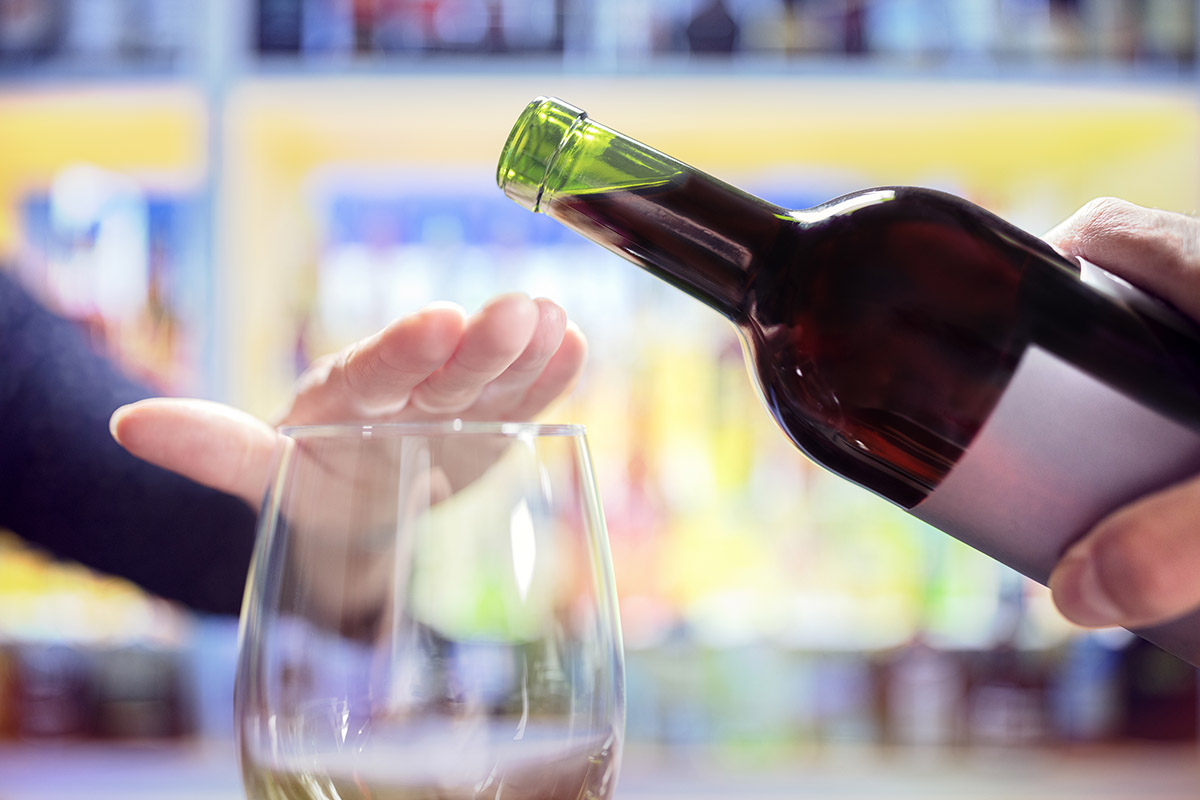
Stop Drinking
There are a number of physical, psychological, and social perks that come along when you stop drinking. Despite alcohol being a common substance in everyday social gatherings, it has a lot of negative baggage that comes along with it. When you stop drinking, you get to let go of all of that baggage.
However, it’s not all sunshine when you decide to stop drinking. An alcohol addiction is just like any other substance addiction: it’s hard to quit. When you decide to stop drinking, you need to know exactly what you’re getting into.
Your path to recovery is waiting
and we’re here to help.
Our admissions specialist are available 24/7 to listen to your story and get you started with next steps.
Why call us?
Symptoms of Alcohol Withdrawal
Alcohol withdrawal features a variety of physical and psychological symptoms that begin around 12–24 hours after your last drink. The symptoms will depend upon a number of factors, including the severity of your alcohol addiction and your own medical history. These symptoms include:
- Fast heart beat
- Headaches
- Sweating
- Confusion and disorientation
- Anxiety
- Tremors or shakiness
- Agitation and irritability
- Nausea or vomiting
- Seizures
Because some of these symptoms are severe and potentially dangerous, a self-detox is never recommended. Detoxing with a medical professional’s supervision will ensure a safe and more comfortable detox.
Health Benefits When You Stop Drinking
The physical and mental health benefits that happen when you stop drinking far outweigh any negative outcomes. When you stop drinking, you’re promising yourself a longer, healthier, and happier life.
When drinking, many people don’t realize how many calories they’re actually ingesting. Weight loss is common when you stop drinking because you stop ingesting those extra calories and your appetite sometimes decreases.
Alcohol causes severe damage to your organs and bodily system over time, particularly your liver. When you stop drinking, you significantly reduce your risk of various forms of cancer, cirrhosis, pancreatitis, gastritis, liver failure, heart disease, and stroke.
If alcohol consumed your life to the point where you damaged your relationships with family and friends, being sober gives you the opportunity to repair those relationships or make newer, healthier ones. Socially, although you may feel a bit awkward not ordering a drink at happy hour with your coworkers, you’re able to more coherently enjoy social gatherings and find healthier alternative activities to partake in.
Recovery From Alcoholism
Now that you know what happens after you stop drinking, you’re probably wondering how you start. As mentioned, it’s not recommended to self-detox from alcohol. Self-detox puts you at a higher risk for an alcohol relapse, which can be extremely dangerous. In addition to detox, you’ll need addiction therapy programs to address your addictive behaviors and learn coping skills for lifelong sobriety.
Amenities Help You Stop Drinking
Along with detox and therapy, Serenity Lodge also offers you amenities to help you stop drinking. In order to stop drinking, you need positive coping mechanisms and structure in order to stick, and Serenity Lodge has both in spades. Rehab is the perfect time to build new healthy habits to help you stop drinking for good.
In our safe, relaxing environment, clients also take full advantage of amenities including but not limited to:
- Sauna and massage therapy
- Racquetball courts
- Fully equipped fitness facility
- Pool
- Meditation Pyramid
- Movie theater
- Recording studio
Serenity Lodge amenities can boost self-esteem, and provide clients with lifelong skills and habits that improve mood and cement drug addiction recovery. From sports to creative art, Serenity Lodge offers you the chance to have fun without addiction. Come find your new passion with us today!
If you’re a man struggling with alcoholism—or other addictions— and you’re ready for a change, call Serenity Lodge at [Direct] today at to regain control of your life.
Leave a reply

